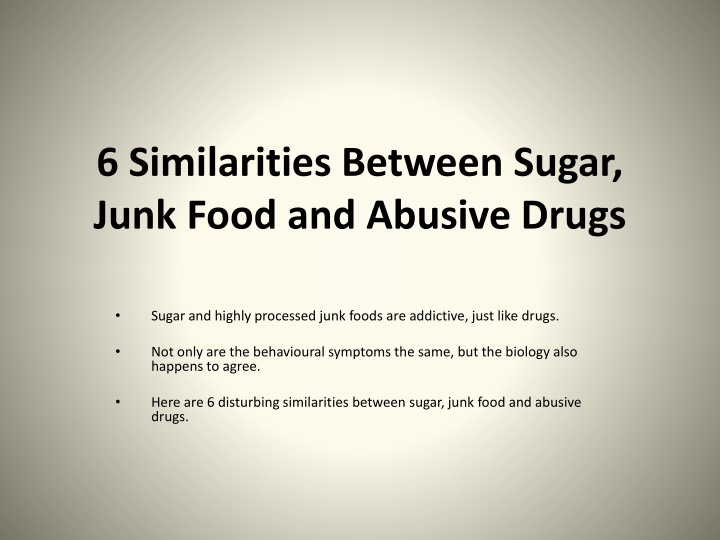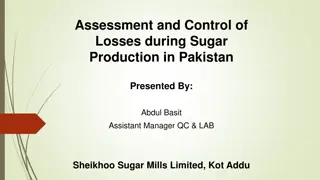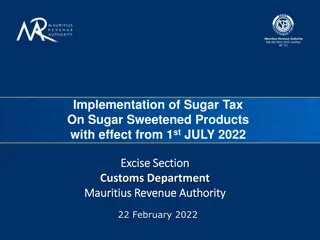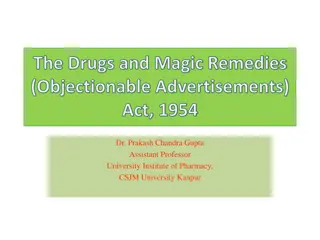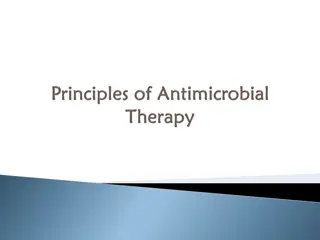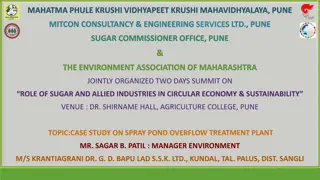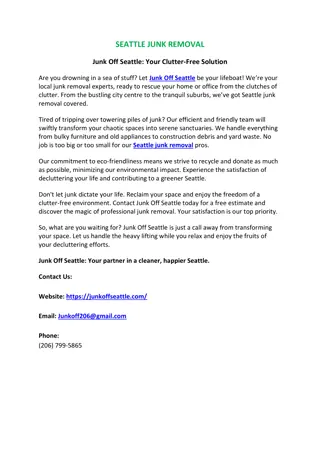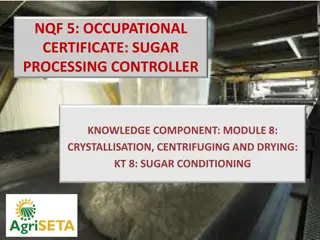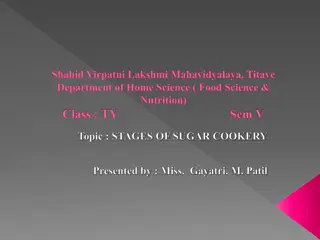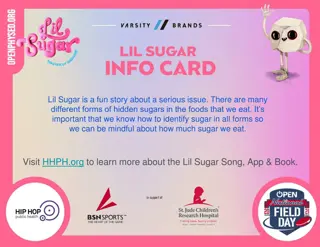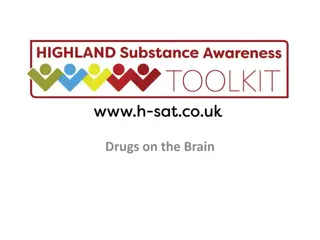Disturbing Similarities Between Sugar, Junk Food, and Abusive Drugs
Sugar and highly processed junk foods share disturbing similarities with abusive drugs, including dopamine flooding in the brain, leading to powerful cravings, activating similar brain areas, and building tolerance to rewarding effects. These similarities highlight the addictive nature of these food choices and their impact on behavior and biology.
Download Presentation

Please find below an Image/Link to download the presentation.
The content on the website is provided AS IS for your information and personal use only. It may not be sold, licensed, or shared on other websites without obtaining consent from the author.If you encounter any issues during the download, it is possible that the publisher has removed the file from their server.
You are allowed to download the files provided on this website for personal or commercial use, subject to the condition that they are used lawfully. All files are the property of their respective owners.
The content on the website is provided AS IS for your information and personal use only. It may not be sold, licensed, or shared on other websites without obtaining consent from the author.
E N D
Presentation Transcript
6 Similarities Between Sugar, Junk Food and Abusive Drugs Sugar and highly processed junk foods are addictive, just like drugs. Not only are the behavioural symptoms the same, but the biology also happens to agree. Here are 6 disturbing similarities between sugar, junk food and abusive drugs.
1. Junk Foods Flood The Brain With Dopamine When we eat, a brain hormone called dopamine is released in an area of the brain called the reward system. We interpret this dopamine signal as "pleasure" and this is actually a good thing... without dopamine, life would be miserable. But the problem is that some modern things (like drugs) can flood our brains with dopamine, way more than we were ever exposed to throughout evolution. Sugar and highly processed junk foods can have the same effect they flood the brain with much more dopamine than we would get by eating real food, like an apple or an egg. This is why highly processed, sugar-laden foods can make (some) people lose control over their consumption. They hijack the same brain pathways as drugs of abuse.
2. Junk Foods Can Lead to Powerful Cravings Cravings are a powerful feeling. People often confuse them with hunger... but the two are not the same thing. Some people get cravings despite having just finished a fulfilling, nutritious meal. This is because cravings are not about satisfying your body's need for energy, instead it is your brain calling for "reward." Cravings for junk foods are actually very similar to cravings for drugs, cigarettes and other addictive substances. The obsessive nature and thought processes are identical.
3. Junk Foods Light up the Same Brain Areas as Drugs of Abuse Researchers often use devices called functional MRI scanners to sense changes in blood flow in specific areas in the brain. Because the blood flow is directly tied to the activation of neurons, they can use these devices to measure which areas in the brain are being activated. Using such devices, studies have shown that both food and drug cues activate the same brain regions, and that the same areas are activated when people crave either junk food or drugs.
4. A Tolerance to The "Rewarding" Effects Builds up When the brain gets flooded with dopamine, the brain starts reducing its number of dopamine receptors in order to keep things balanced. This is a well known feature of drugs of abuse. People need progressively larger and larger doses because the brain reduces its number of receptors. This implies that people who are addicted to junk food don't necessarily get any more pleasure from eating... because their brain cuts back on dopamine receptors in response to the repeated overstimulation. Tolerance is one of the hallmarks of addiction. It is common to all drugs of abuse... and applies to sugar and junk food as well.
5. Many People Binge on Junk Foods When addicts become tolerant to the effects of a drug, they start increasing the dosage. Instead of 1 pill, they take 2... or 10. Because there are now fewer receptors in the brain, a larger dose is needed to reach the same effect. This is the reason why some people binge on junk food. Binge eating is a well known feature of food addiction, as well as other eating disorders that share common symptoms with drug abuse.
6. Abstaining Can Lead to Withdrawal Symptoms Withdrawal symptoms are another key feature of addiction. This is when addicted individuals experience adverse symptoms when they stop ingesting the substance they are addicted to. A prominent example is caffeine withdrawal. A lot of people who are addicted to caffeine get headaches, feel tired and become irritable if they abstain from coffee for long periods of time. There is evidence that this applies to junk food as well.
WHAT SHOULD I DO? If you think you have a problem related to something we have looked at today : Speak to a parent Talk to your friends they will help you to talk to an adult Talk to your form tutor or another teacher Ask to see the school nurse Ask to speak to your Head of Year
